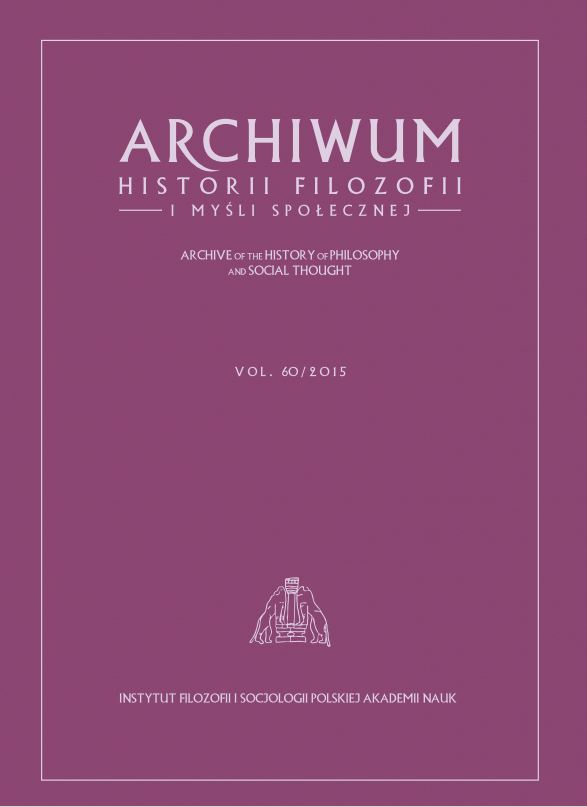Platoński „Świat idei” w ujęciu Hermanna Lotzego
Plato’s “World of Ideas” according to Hermann Lotze
Author(s): Wojciech HanuszkiewiczSubject(s): Philosophy, History of Philosophy, Ancient Philosphy, Contemporary Philosophy
Published by: Instytut Filozofii i Socjologii Polskiej Akademii Nauk
Keywords: Lotze; Plato; theory of ideas; logic; validity (Geltung)
Summary/Abstract: The main objective of the paper is to analyze the concept of validity (Geltung) presented by Hermann Lotze in second chapter (entitled „World of Ideas”) of the third book of his Logic published in 1874. Contrary to wide spread opinion (propagated, among others, by Martin Heidegger) this concept is not ambiguous. Interpretation of Plato᾽s world of ideas,offered by Lotze, presents a coherent theory of Geltung. One can distinguish four aspects of this theory: ontical, semantic, pragmatic and phenomenological-metaphysical one. Validity of the content of judgment pertains to the ontical aspect and is opposed to the judgment conceptualized as the mere act of judging. The distinction between the act and its product plays here the main role. The semantic aspect is recognizes the reference of objective valid conceptual content of judgment to object, which is intended in this content. The pragmatic aspect the same objective conceptual content considers in its subjective (formal) way, as an act of recognition by the judging subject. Phenomenological-metaphysical aspect shows that we have also other types of the access to the world (i.e. by feelings, moods or practical activity), more than just one which is offered by the conceptual content of judgments.
Journal: Archiwum Historii Filozofii i Myśli Społecznej
- Issue Year: 60/2015
- Issue No: 60
- Page Range: 367-379
- Page Count: 13
- Language: Polish

